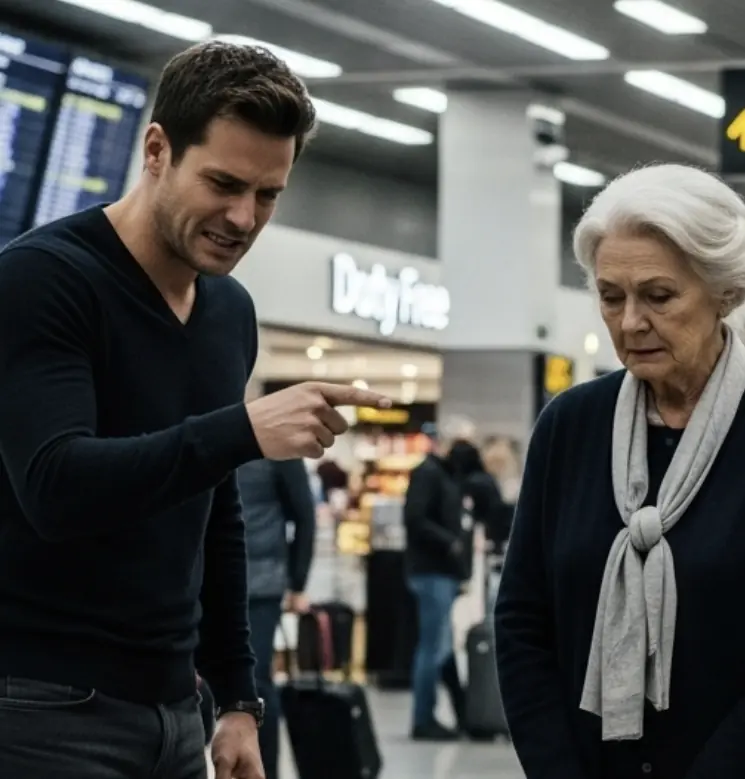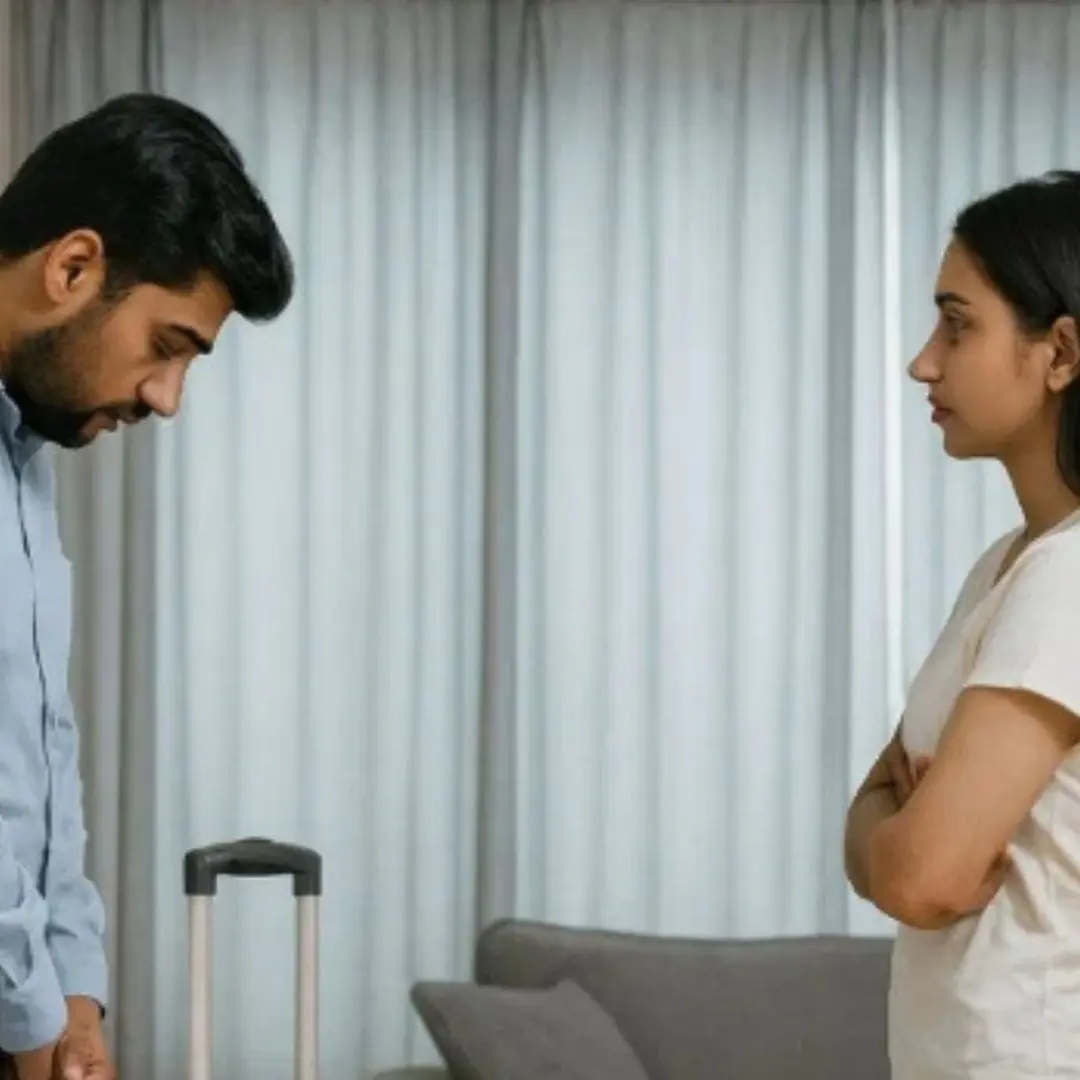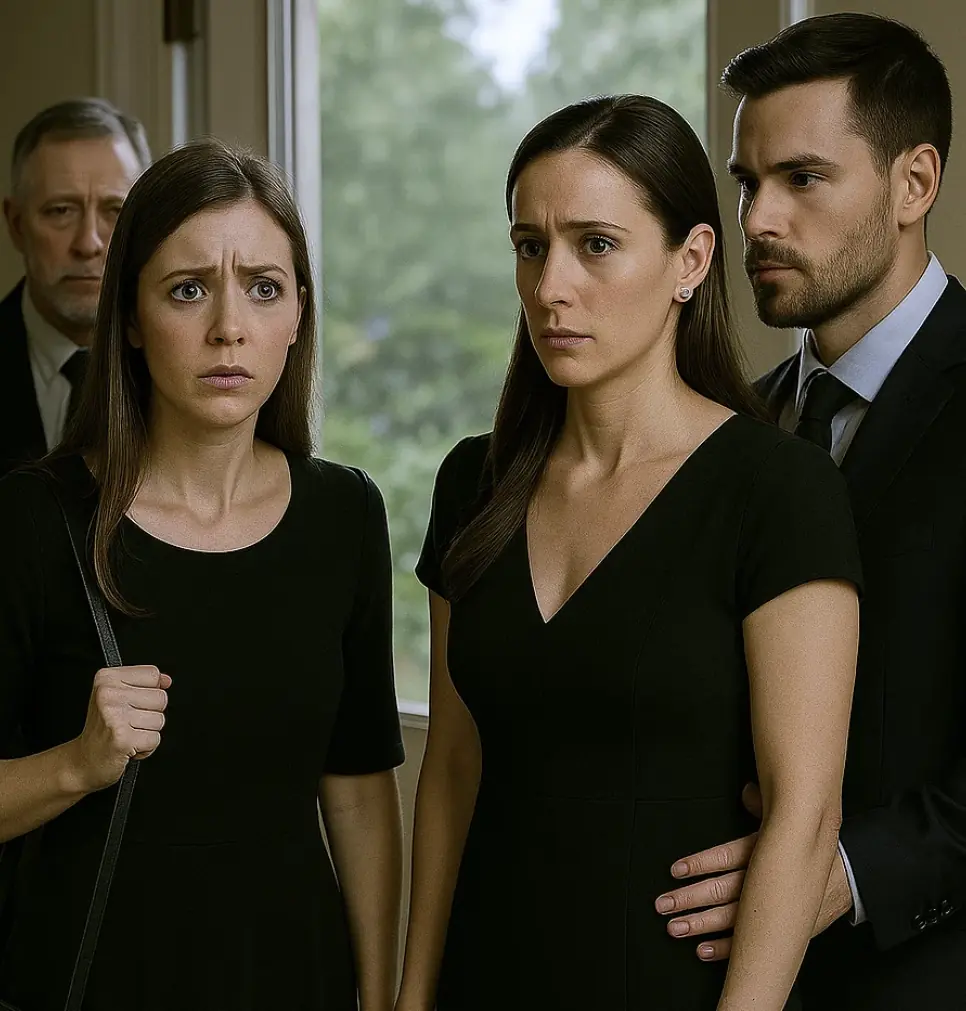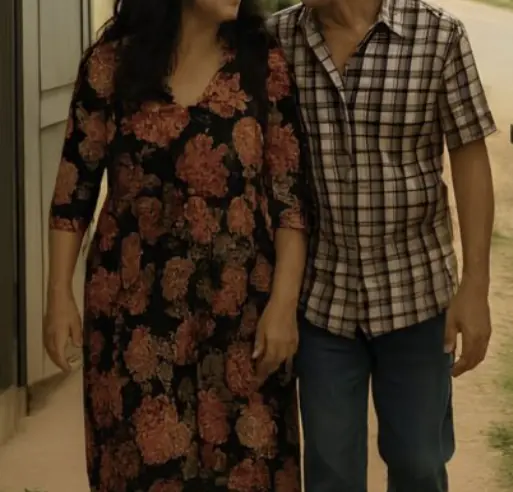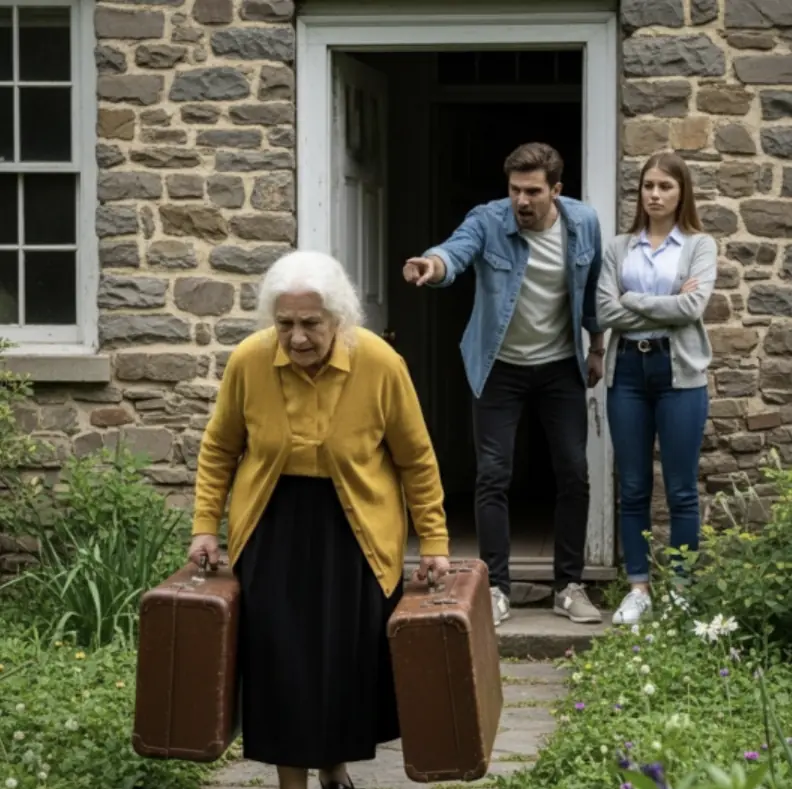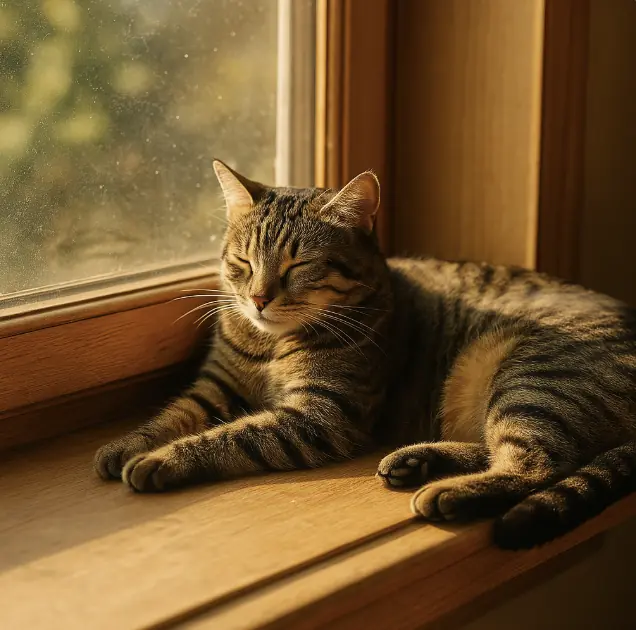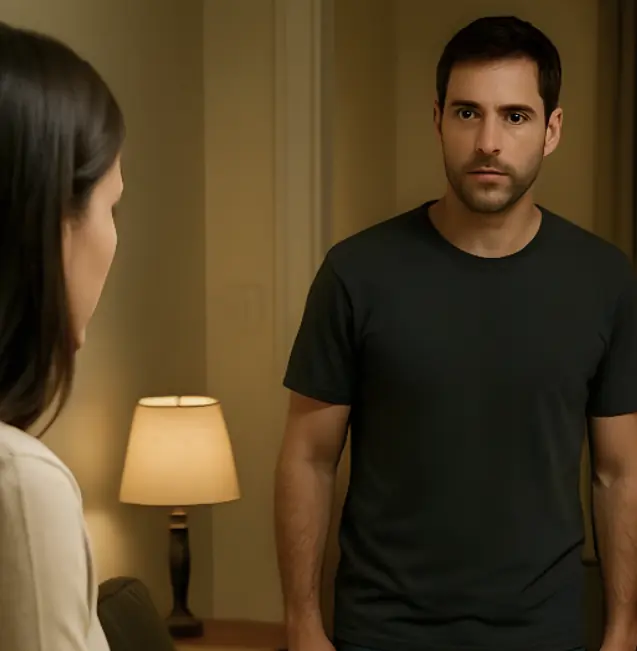I never expected to find anything interesting in our attic. The space above our house had always been a dusty storage area filled with forgotten furniture, boxes of winter clothes, and holiday decorations. My father rarely went up there, and I had no real reason to explore it either—until the day I decided to clean it out to create a small reading nook.
That afternoon, sunlight streamed through the small attic window as I swept away dust and moved boxes around. The air smelled like old wood and fabric that had been untouched for years. I was shifting a large trunk away from the corner when something behind it caught my attention: a wooden box, sealed with thick brown tape that looked decades old.
The box was small, almost delicate, with a faded floral pattern. My curiosity flared immediately. I pulled it out carefully, brushing off dust that rose in soft clouds. The tape looked brittle, so I peeled it away slowly, revealing a simple metal latch underneath.
When I opened the lid, my breath caught.

Inside were several yellowed envelopes tied together with a ribbon. Their edges were worn, and the paper had softened with age. I lifted the stack gently, feeling the weight of something strangely personal. Each envelope had my name written on it—my full name, in elegant handwriting.
But the postmarks were dated ten years before I was born.
A chill ran through me. It wasn't fear, exactly—more like a deep, unsettling curiosity. I sat cross-legged on the attic floor and untied the ribbon. The first letter was addressed to “My Dear Lily,” even though my parents never called me that growing up. Only my closest friends used that nickname, and they definitely didn’t exist a decade before I was born.
My hands trembled slightly as I unfolded the letter. The handwriting was beautiful—soft curves, steady strokes. The tone was warm and affectionate, almost as if the writer knew me personally. The letter mentioned things that felt oddly intimate: my love for writing, my habit of overthinking, my tendency to hide sadness behind jokes. The writer described me as “a girl who will one day stand between logic and emotion, always trying to balance the two.”
These were things I had only recently begun to discover about myself. How could someone predict them so precisely?
Confused, I opened another letter. This one spoke about challenges I was currently facing—my struggle with choosing a career path, my complicated relationship with my father, even my growing desire for independence. Reading those lines made my heart beat faster. The writer couldn’t possibly know these things unless they had somehow observed my life closely.
But these letters were written before I existed.
The signature at the end of each letter belonged to someone named Margaret Whitmore. A name I had never heard in my entire life. There was no Whitmore in my family, no friend, no distant relative with that name. My mother never mentioned her. My father never told stories about her.
I took the letters downstairs and found my father in the living room, reading a newspaper. He looked up as I entered, but his face changed the moment he saw the envelopes.
“Where did you get those?” he asked, his voice unusually sharp.
“In the attic,” I said. “They’re addressed to me.”
He swallowed, his eyes shifting away. “You shouldn’t read old things like that. They’re from a long time ago.”
“Dad,” I pressed, “who is Margaret Whitmore? Why would she write letters to me before I was born?”
He stood up abruptly. “Let’s not talk about this.”
That was the first time my father ever refused to explain something to me. He always tried his best to be open with me growing up, and even when topics were emotional, he approached them gently. But now he was shutting down completely.
The next day, I asked my aunt about the name. She paused for a long moment before shaking her head. “I’m not sure,” she said softly. “Someone from your father’s past, maybe.”

Her tone told me she knew more than she let on. When I asked again, she looked down and mumbled something about old memories and complications she didn’t feel right talking about.
Everyone I asked reacted the same way—quiet, hesitant, avoiding eye contact. That secrecy only made my curiosity stronger.
Over the next few days, I read every letter carefully. There were dozens of them, each filled with reflections, gentle advice, stories from the writer’s life, and thoughtful predictions about mine. They weren’t mystical or dramatic—just strangely accurate, as if the writer had observed the essence of who I would become long before I existed.
One letter said, “I hope she grows up feeling loved, even when life feels heavy. She will carry her mother’s kindness and her father’s quiet strength. She will question everything but hold on to the truth with both hands.”
Another letter said, “If she ever feels lost, let her know she was wished for long before she took her first breath.”
That line made me pause. Wished for by whom?
I began searching the attic for more clues. Behind the wooden box, I found a small notebook buried under some folded blankets. Inside were handwritten pages—drafts of letters, incomplete thoughts, and memories written by the same hand. The notebook detailed conversations, regrets, hopes, and dreams. The entries mentioned my father often, always warmly, always respectfully.
The writer was in love with him.
But it wasn’t a jealous love or a dramatic one. It was tender, unspoken, and filled with acceptance. She wrote about how she knew he cared deeply for someone else—my mother. She admired their bond, their dreams, their quiet certainty.
In one of the final entries, she wrote, “If they have a child, I will write to her. I will give her every piece of kindness I wish I could give to him. She will be the child I never had, but always hoped would exist in a better world.”
Tears gathered in my eyes. These letters weren’t warnings. They weren’t predictions. They weren’t supernatural. They were love—pure, silent, generous love.
I took the notebook and letters to my father again. This time, I laid them gently in front of him.
“Please,” I said softly. “I need to know.”
He stared at the stack for a long time, as if seeing ghosts rise from the pages. Then he sat down, breathed out slowly, and finally began to speak.
“Margaret was your mother’s closest friend. They met in college. She was brilliant, thoughtful, and incredibly kind. But she had a quiet life, a lonely one in many ways.” His voice softened. “She loved your mother like a sister. And she cared for me too. More than I realized at the time.”
I listened silently as he explained how Margaret had been part of their lives—how she spent holidays with them, supported them through difficult moments, and dreamed of a family she never had. When my parents married, she drifted into the background but never truly left their hearts.
When my mother became pregnant with me, Margaret told her she wanted to write letters for the child—letters filled with encouragement, advice, and warmth. She said she wanted to put all the kindness she couldn’t express directly into something she could give freely.

But my mother knew the truth: Margaret had deeper feelings for my father. Feelings she never acted on, but that shaped her life quietly. My mother didn’t resent her. She simply wanted to protect the balance of their friendship and marriage. So she kept the letters in the attic, waiting for the right time to give them to me.
That time never came.
My father said softly, “Your mother didn’t want you to grow up feeling caught between stories from the past. She wanted you to feel secure, not burdened by someone else’s unspoken feelings.”
I held the letters close to my chest. They didn’t hurt me. They didn’t confuse me. They filled me with something warm and gentle—like receiving a gift from someone who wanted the best for me even without knowing who I would become.
The letters weren’t about fate or predictions. They were reflections of love, admiration, and longing. They were the silent echoes of a woman who had hoped to give kindness to a child she would never meet.
And in a way, she did.
She gave those pieces of herself to me, long before I took my first breath.
Now, whenever I feel uncertain about life, I go back to those letters. I read her words. I listen to her hopes. And I feel a strange sense of connection—to her, to my mother, to the quiet bonds that shape lives without ever being spoken aloud.
It turns out some stories aren’t about mystery at all.
They’re about love that chose a quiet place to live
until the right moment came for it to be found.








